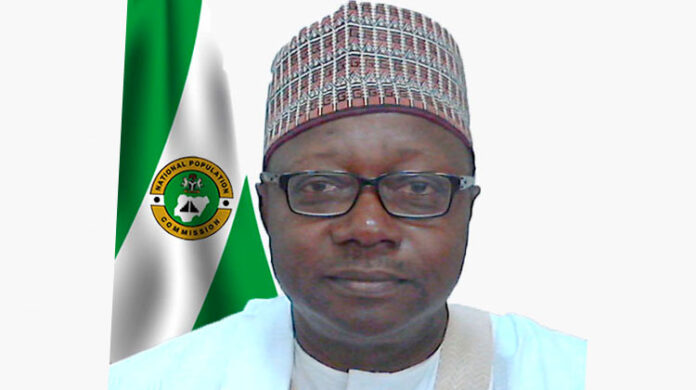18 years after the last population and housing census, the National Population Commission (NPC), has given hints of undertaking the exercise in 2025.
By Emma Ogbuehi
18 years after the last population and housing census, the National Population Commission (NPC), has given hints of undertaking the exercise in 2025.
NPC Chairman, Nasir Kwarra, made the disclosure during the 2024 anniversary of the Nairobi Summit on the International Conference on Population and Development held in Abuja on Thursday.
Kwarra who underscored the challenge of imprecise population data in national development, emphasised that a reliable headcount is important in decision making and implementation.
“A major setback that we face is the delay in conducting a Population and Housing Census. A reliable and accurate census is fundamental for a good decision making.
READ ALSO:
Paul Kagame hosts Moghalu, shares vision of ASG value
“But the government, at the highest level, is committed to conducting a census, and we believe it will take place next year,” he said.
The announcement came nearly two decades after Nigeria’s last census in 2006, despite the United Nations’ recommendation for countries to conduct population counts every 10 years.
The last attempt to hold the census in 2023 were postponed under the administration of former President Muhammadu Buhari on ground that since the administration was winding down, the exercise was better left for the incoming government.
Speaking at the event, Kwarra emphasised the impact of the delay, particularly in hampering informed decision-making and effective resource allocation.
The NPC chairman also highlighted the need for accurate data to address pressing issues in rural and underserved areas.
He noted that Nigeria’s inability to conduct timely censuses had hindered progress in advancing sexual and reproductive health rights, eliminating gender-based violence, and promoting inclusivity.
The NPC boss stated, “We are gathered in the spirit of a shared commitment to progress, inclusivity, and the empowerment of individuals, particularly women and young people.
“Our focus is on advancing sexual and reproductive health, eliminating gender-based violence, and promoting equal opportunities for everyone in our nation.
“We must continue our march to address these challenges head-on. For many in our communities—particularly women, girls, and young people—sexual and reproductive health rights remain out of reach.
“This is not just a health issue; it is also an issue of social and economic justice. When individuals are denied the ability to make choices about their health and lives, it limits their potential, reduces opportunities, and impacts society as a whole.”
In her remarks, the founder of the Wellbeing Foundation Africa, Toyin Saraki, pledged continued advocacy and policy support to advance the ICPD agenda.
Saraki called on private, philanthropic, and multi-sector stakeholders to collaborate in accelerating progress toward achieving the initiative’s goals.













